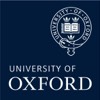SPEAKERS
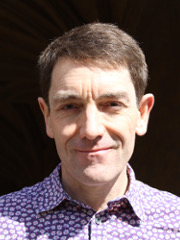
Harry L. Anderson FRS
Professor of Chemistry
University of Oxford
University of Oxford
Harry L. Anderson studied Chemistry at the University of Oxford, completing a Part II with John M. Brown on “Complexation of Rhodium to DNA Bases” in 1987, before moving to Cambridge do a PhD with Jeremy K. M. Sanders on “Model Enzymes Based on Porphyrins”. He carried out postdoctoral work at ETH Zurich, Switzerland, with François Diederich on fullerene chemistry. He has led an independent research group at the University of Oxford since 1995. His interests include template-directed synthesis, multivalent cooperativity, aromaticity, photochemistry, molecular electronics and charge transport, insulated molecular wires, dyes, rotaxanes, polyynes, cyclocarbons and π-conjugated porphyrin oligomers.
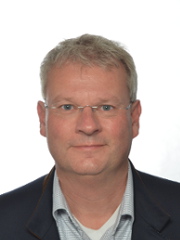
Thomas Carell
Professor of Organic Chemistry
Ludwig-Maximilians-Universität Munich, Germany
Ludwig-Maximilians-Universität Munich, Germany
Thomas Carells’ research interest focusses around DNA and RNA chemistry. The group wants to understand the chemical basis of mutagenesis and epigenetics. To this end the group synthesizes DNA lesions and epigenetic DNA and RNA modifications in order to obtain e.g. crystal structures of lesion containing oligonucleotides in complex with repair enzymes (photolyases) and polymerases (Pol h). The Carell group combines high-end mass spectrometry with chemical synthesis in order to analyze lesion formation and epigenetic processes in cells including stem cells. This led to the discovery of the new base 5-formyl-dC in stem cells. Currently the function of this new base during stem cell differentiation and in the brain is a major topic of research. A second line of interest is prebiotic chemistry, where the Carell group has discovered a new prebiotically plausible pathway to purine and pyrimidine nucleosides.
Thomas Carell holds the chair I for Organic Chemistry at the Ludwig-Maximilians-Universität (LMU) in Munich (Germany). He is a member of the German National Academy Leopoldina and of the Berlin-Brandenburgische Academy of Arts and Sciences. He is the recipient of the Cross of Merit from the Federal Republic of Germany (knighted). Thomas Carell founded the company Baseclick GmbH is he a board member at BASF SE.
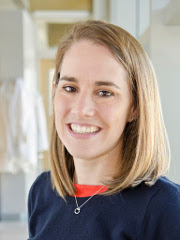
Sarah Reisman
Professor of Chemistry
California Institute of Technology, USA
California Institute of Technology, USA
Sarah was born and raised in Bar Harbor, Maine. She attended Connecticut College in New London, CT, where she worked in the laboratory of Prof. Timo Ovaska, and graduated with honors in 2001. In the fall of that year, Sarah enrolled in graduate studies at Yale University and joined the research group of Prof. John Wood. She earned her Ph.D. in chemistry in 2006; her thesis detailed the total synthesis of the natural product welwitindolinone A isonitrile. For her postdoctoral work, Sarah pursued studies in the field of asymmetric catalysis as an NIH fellow, working with Prof. Eric Jacobsen at Harvard University.
The Reisman Laboratory conducts research in the field of natural product synthesis, with an emphasis on the development of new synthetic methods that facilitate the construction of complex molecules.
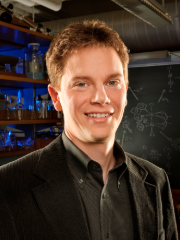
Tobias Ritter
Professor of Chemistry
Max-Planck-Institut für Kohlenforschung, Germany
Max-Planck-Institut für Kohlenforschung, Germany
Tobias Ritter is the Director in the Department of Organic Synthesis at the Max-Plank-Institut für Kohlenforschung in Mülheim, Germany since 2015. Following the completion of his master’s studies at the Technical University of Braunschweig in 1999, Tobias Ritter went onto to complete his doctoral studies at ETH Zurich, under the supervision of Erick M. Carreira. In 2004, he moved to the United States to work as a post-doctoral researcher with Robert H. Grubbs at the California Institute of Technology. In 2006, he began his independent career as Assistant Professor of Chemistry and Chemical Biology at Harvard University and was promoted to the ranks of Associate Professor in 2010 and full Professor in 2012. Since 2017, Tobias Ritter is also Honorary Professor of Chemistry and Chemical Biology at RWTH Aachen University.
Tobias Ritter’s research interests encompass various aspects of synthetic organic and organometallic chemistry, complex molecule synthesis and mechanistic studies that contribute to the development of novel reaction chemistry. Through the discovery of unprecedented molecular structure and reactivity, his group aims to contribute towards interdisciplinary solutions for contemporary scientific challenges.
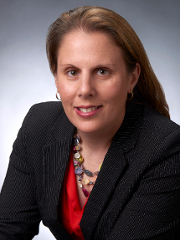
Rebecca T. Ruck
Executive Director of Enabling Technologies
Merck Research Laboratories, USA
Merck Research Laboratories, USA
Dr. Rebecca T. Ruck joined Merck Research Laboratories, Process Research & Development in 2005 and is currently Executive Director of Enabling Technologies, PR&D in Rahway, NJ. Her team is tasked with leveraging its expertise in areas such as Catalysis, Biotechnology and Flow Chemistry to enable processes for APIs in the MSD pipeline and developing new capabilities that will allow us to continue to do so into the future. Becky previously served as Director of three different teams: Process Chemistry, Catalysis & Automation and Discovery Process Chemistry. Over the course of her career, Becky and her team have impacted projects across a range of therapeutic areas, including beta-lactamase inhibitors, hepatitis C and diabetes.
Becky earned her A.B. summa cum laude from Princeton University in 1998. She received a Ph.D. from Harvard University in 2003, where she was an NSF Fellow in the research group of Professor Eric Jacobsen. Following graduate studies, Becky served as an NIH post-doctoral fellow in the lab of Professor Robert Bergman at the University of California, Berkeley. She has a real passion for driving Women in Chemistry activities and was named the 2018 winner of the ACS Award for Encouraging Women into Careers in the Chemical Sciences.
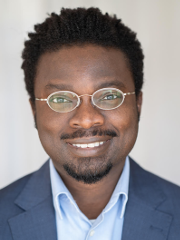
Richmond Sarpong
Professor of Chemistry
University of California Berkeley, USA
University of California Berkeley, USA
Richmond Sarpong is a Professor of Chemistry at the University of California Berkeley where he and his group specialize in synthetic organic chemistry. Richmond became interested in chemistry after seeing, firsthand, the effectiveness of the drug ivermectin in combating river blindness during his childhood in Ghana, West Africa. Richmond described his influences and inspirations in a TEDxBerkeley talk in 2015 (Face of Disease in Sub-Saharan Africa). Richmond completed his undergraduate studies at Macalester College in St. Paul, MN and his graduate work was carried out with Prof. Martin Semmelhack at Princeton. He conducted postdoctoral studies at Caltech with Prof. Brian Stoltz.
At Berkeley, Richmond’s laboratory focuses on the synthesis of bioactive complex organic molecules, with a particular focus on secondary metabolites that come from marine or terrestrial flora and fauna. These natural products continue to serve as the inspiration for new medicines. It is Richmond’s hope that through the work in his laboratory, he and his coworkers will uncover methods and strategies for synthesis that may contribute to more efficient ways to prepare bioactive compounds that may inspire new medicines.
Of all his professional accomplishments, Richmond is most proud of the students in his research group and those with whom he has worked in the past that have gone on to their own independent careers. He enjoys teaching and was the recipient of the 2009 UC Berkeley Department of Chemistry teaching award and the 2016 Noyce Prize for Excellence in Undergraduate Teaching in the Physical Sciences at Berkeley. Richmond’s research group has published over 110 papers and he has received numerous awards in recognition of his research including an Alfred P. Sloan Foundation Fellowship, Japan Society for the Promotion of Science Fellowship, Camille Dreyfus Teacher-Scholar Award, ACS Cope Scholar Award, NSF Career Award, the 2015 Royal Society of Chemistry Synthetic Organic Chemistry Award, a 2017 Guggenheim Fellowship, the ISHC Katritzky Award, and the Society of Synthetic Organic Chemistry Japan Mukaiyama Award for 2019.
Of all his professional accomplishments, Richmond is most proud of the students in his research group and those with whom he has worked in the past that have gone on to their own independent careers. He enjoys teaching and was the recipient of the 2009 UC Berkeley Department of Chemistry teaching award and the 2016 Noyce Prize for Excellence in Undergraduate Teaching in the Physical Sciences at Berkeley. Richmond’s research group has published over 110 papers and he has received numerous awards in recognition of his research including an Alfred P. Sloan Foundation Fellowship, Japan Society for the Promotion of Science Fellowship, Camille Dreyfus Teacher-Scholar Award, ACS Cope Scholar Award, NSF Career Award, the 2015 Royal Society of Chemistry Synthetic Organic Chemistry Award, a 2017 Guggenheim Fellowship, the ISHC Katritzky Award, and the Society of Synthetic Organic Chemistry Japan Mukaiyama Award for 2019.
 "/>
"/>
